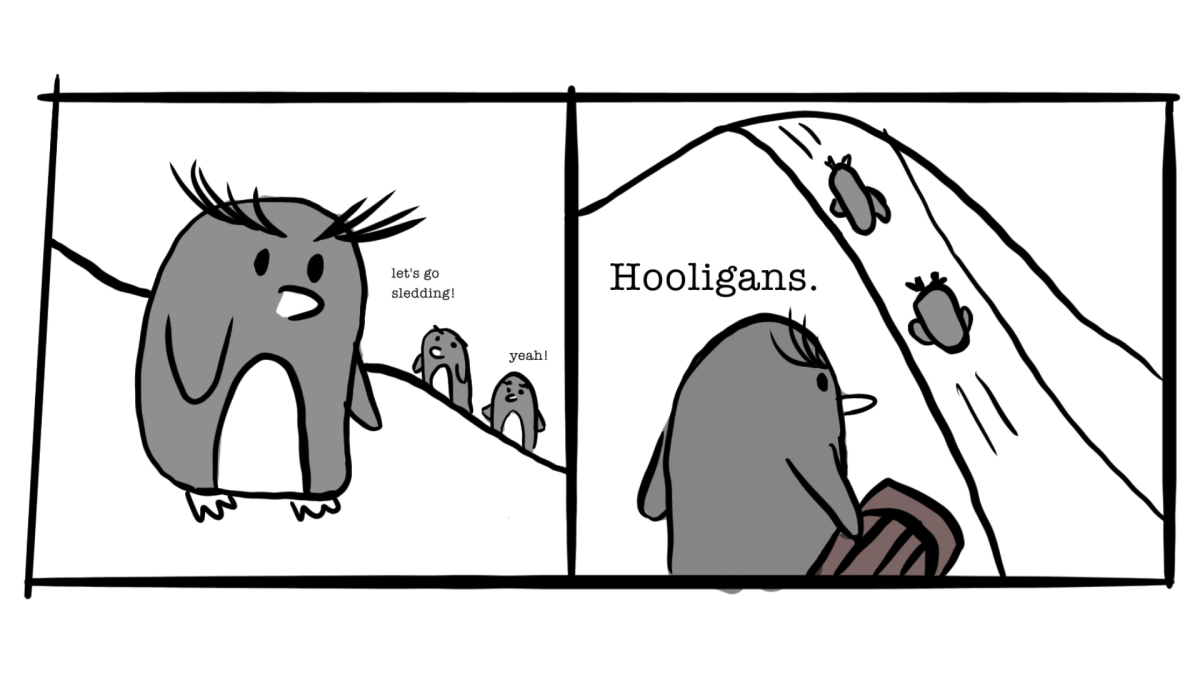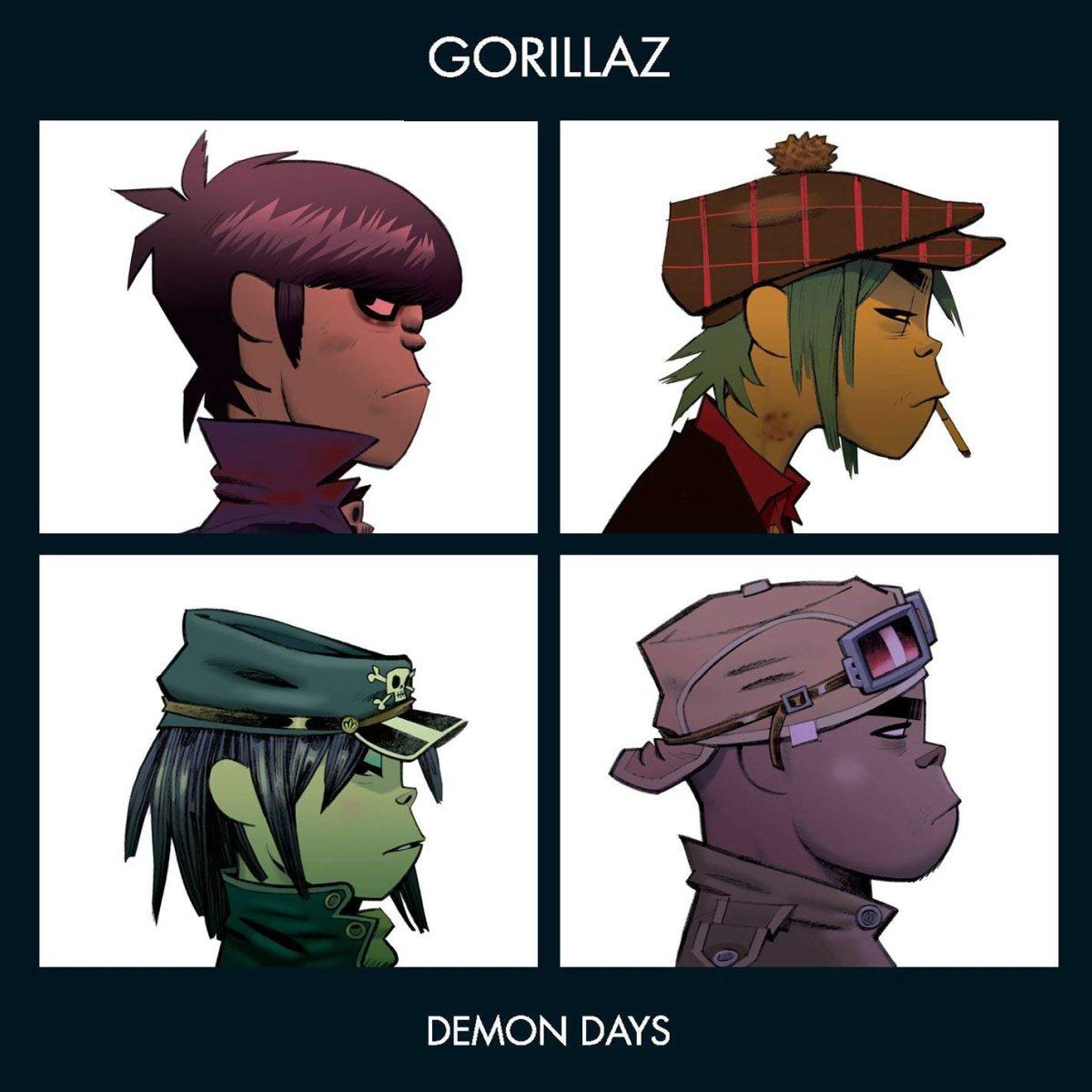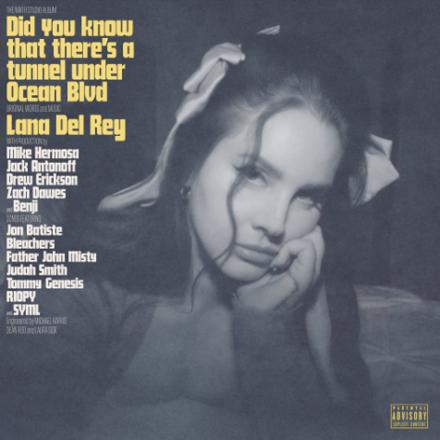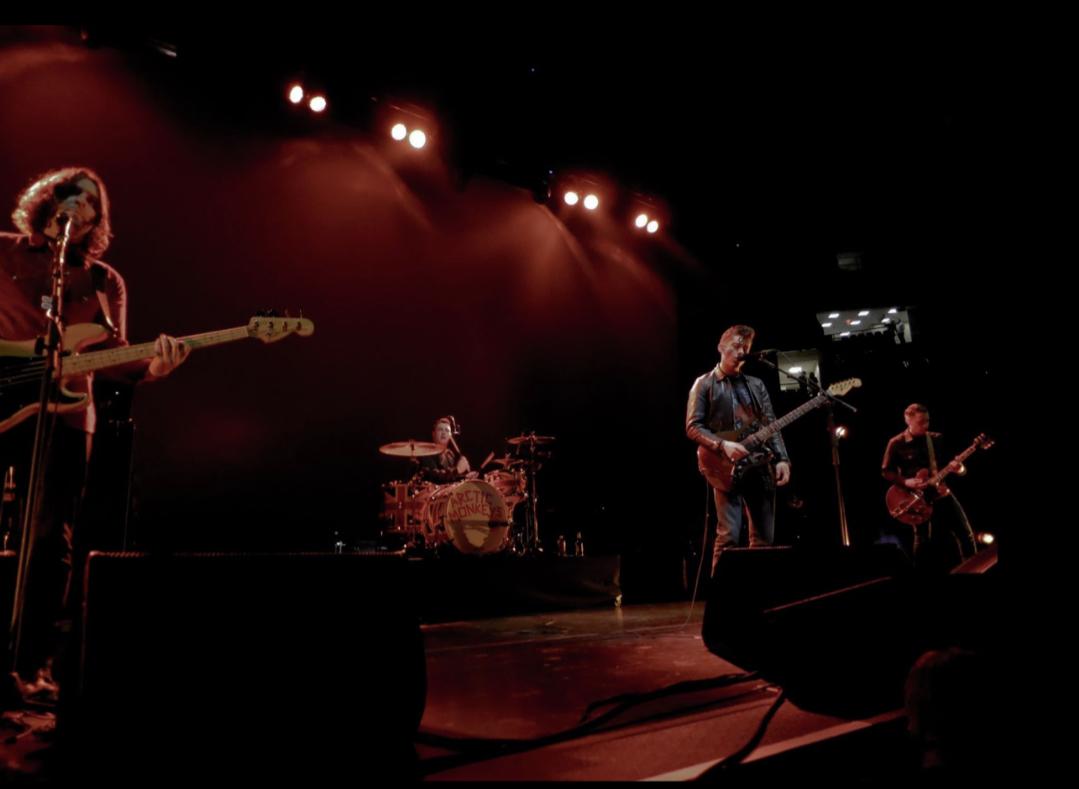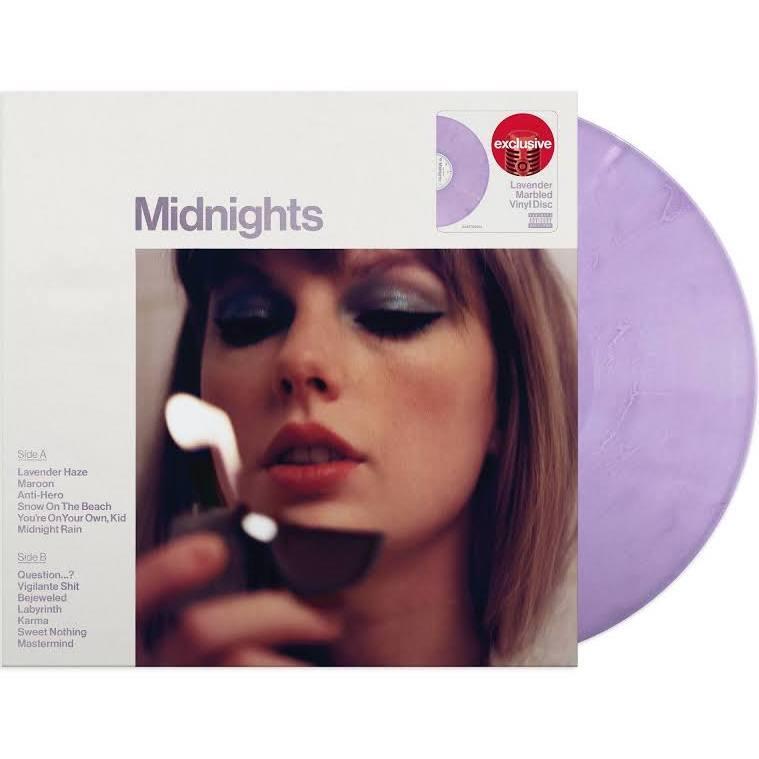Demon Dayz by Gorillaz
Opinions belonging to Luke Hobika
Best tracks: “Kids with Guns;” “O Green World;” “Feel Good Inc.;” “Dare”
Worst tracks: “All Alone;” “White Light;” “Demon Days”
Parties and I have a love/hate relationship. In some cases, I savor the opportunity to indulge in conversation with my companions. Other times, the hectic atmosphere can be too overwhelming for my liking. Here, I am left to stand as an outlier in the center of those who are doing the exact opposite as I am doing. As there are partiers and non-partiers, genres in music separate the different styles which comprise musical pieces. For instance, you can identify electronic music by the danceable grooves and loose song structure which electronic instruments help to produce, whereas you can point out the genre of jazz by its sporadic, speedy, hard-hitting rhythms. Yet, like my position in a party setting, some albums serve as anomalies in the classification process, as with the case of Demon Days by British virtual band Gorillaz.

Gorillaz was created in 1998 by musician Damon Albarn and artist Jamie Hewlett. Albarn, Hewlett, and their contributions put out the band’s first album, self-titled Gorillaz, in 2001 along with the presentation of the virtual band of four members that has become the identity of the group. Their odd approach to public display followed the style of music which Gorillaz produced, which could not be placed into one distinct genre. Rather, the group fused genres including electronica, trip-hop, pop, and alternative rock into a sound of their own. The album Demon Days proved that the group could experiment sonically in such a way. At the same time, consistency of topics aside, the band still manages to provide listeners with social narratives that compliment the already adventurous nature of the production.
Everything about the album follows this theme of diversity, from the genres which make up the album to the content of its lyrical verses. Demon Days does not follow a specific path in terms of its narrative, but rather reserves each track its sort of content to ultimately accumulate a broad volume of work. Representing an instance on the album that devotes itself to exposing the corruption of humanity on the environment, “O Green World” contains lyrics of a person who is now realizing that their actions on the earth may have contributed to the most prevalent environmental concerns of society. Albarn, leading the vocals, admits that his mistakes make him unworthy of inhabiting the earth on which he has taken for granted instead of considering the future repercussions. Instrumentally, the wary electronic synths and subtly swamping background static subtly grow in relevance as the track progresses as if following the message that the little decisions we make will reap a grand, haunting result. “Fire Coming Out of the Monkey’s Head” is arguably another socially-conscious song of Demon Days. The track’s intended criticism remains ambiguous, for it follows a storyline, whereas “O Green World” delivered its intentions directly. The tale “Fire Coming Out of the Monkey’s Head” describes a group of mercenaries who imperialize over a mountain which symbolizes peace and prosperity for the tribal group native to that land. While it is never explicitly mentioned, the song’s purpose is to condemn the actions of oil drilling and warfare in foreign areas by already well-established nations. Other songs like the dooming “Kids with Guns,” which deals with an issue which it title bluntly cites, are not to be forgotten in the list of socially-aware tracks.

When you hear about an “earworm song,” a song that belongs to the bubblegum-pop genre of music which incessantly repeats itself on the radio may come to mind. Being an album which defies the rules of sonic classification, Demon Days ventures into earworm territory while not once reaching into the generic territory. Not only will the songs not escape your mind for weeks, the songs shockingly hold strong quality as well. Most notably, “Feel Good Inc.” undoubtedly stands as the top song of Demon Days, with everything from its groovy bassline to its seamless transitions between verses to its unforgettable, and whacky contributions from rap group De La Soul. Its ability to addict the listener against their own will to listen while soundly noting the topics of isolationism and escapism qualify the track to be one of the best songs of the first decade of the twenty-first century. Although not as infectious and mindful as “Feel Good Inc.,” tracks like the animated and carefree “Dare” and the gloomy yet secured “Dirty Harry” stand as compelling tracks, despite their abnormal qualities.
In between Demon Days’ moments of thrilling experimentations and unique concepts, the album travels into a territory in which its attempts fall flat onto a drab ground. Additionally, the cohesiveness of the track list’s quality is noticeably wavy, especially the stretch of tracks in between “Feel Good Inc.” and “Dare.” The album’s ambitious nature already sets the bar of expectation quite high, so the underwhelming moments may be greatly amplified. “Every Planet We Reach Is Dead” is an interesting listen by its lonesome, but it is practically forgettable when dissecting the album as a whole. ‘November Has Come” and “El Manaña,” also, by themselves offer a solid listening experience. However, their “so what?” is undefined by the time the album comes to a close. At its worst, the genre-mixing element of this album backfires completely on the remainder of songs that fill the mid-album stretch, being “All Alone” and “White Light.” The instrumentation of both songs is hardly tolerable, to the point where it may be plausible that the band threw random noises at the wall, saw what had stuck, and stitched them together.
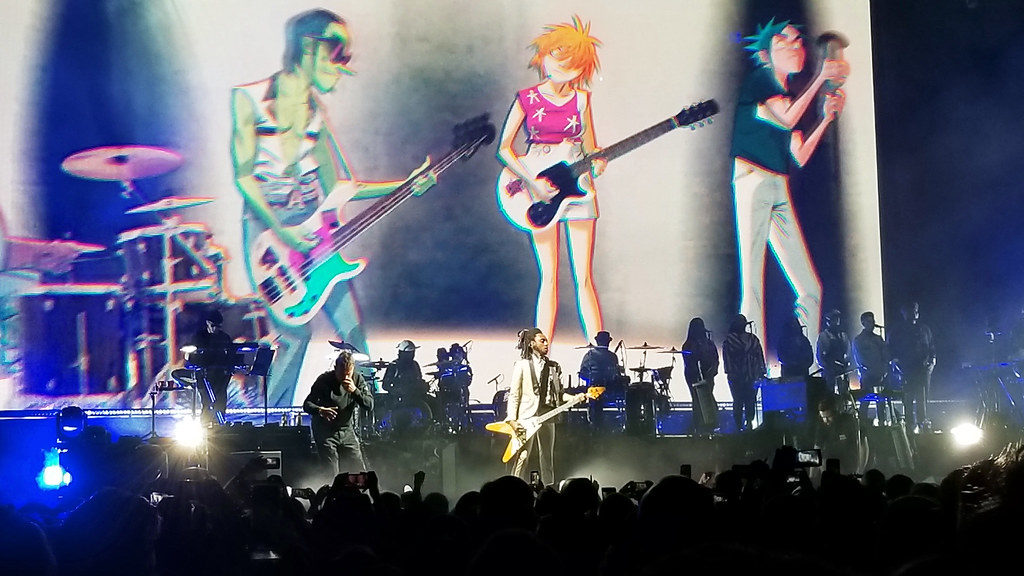
Gorillaz at Barclays Center, Brooklyn in 2018
Demon Days does not emphasize one distinguishable genre in its instrumentation and conceptuality. For the most part, its fusion of the extremes that separate genres into its sound allow the band to cater to a bevy of traits, just like how my attitude at a party blends the two extremes of staying home and being a partier into one. While this produces moments of glimmer and enjoyment, the full assimilation into the setting is never achieved. Like I would experience moments of awkwardness at a party, Demon Days’ pursuance of its extraordinary aims comes with instances of clear pitfalls. Yet, in both instances, the results carry life’s most memorable aspects with it.






